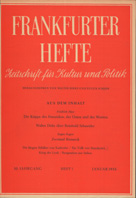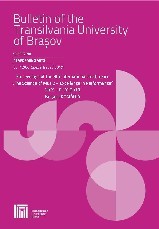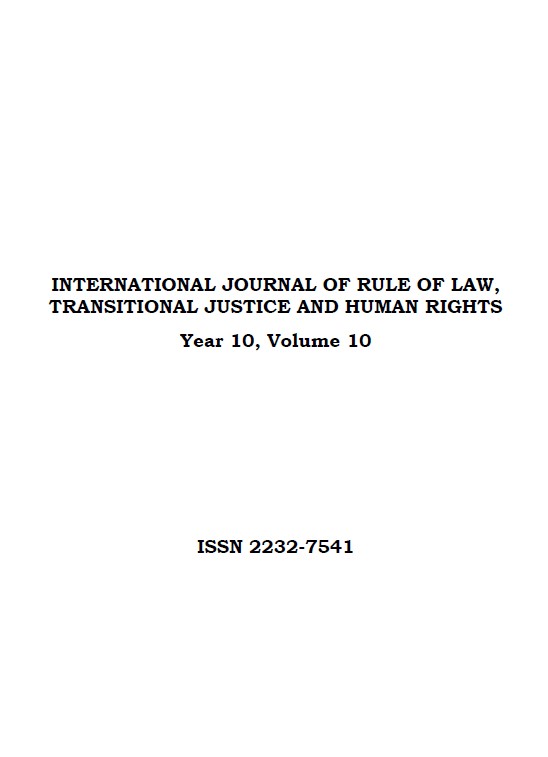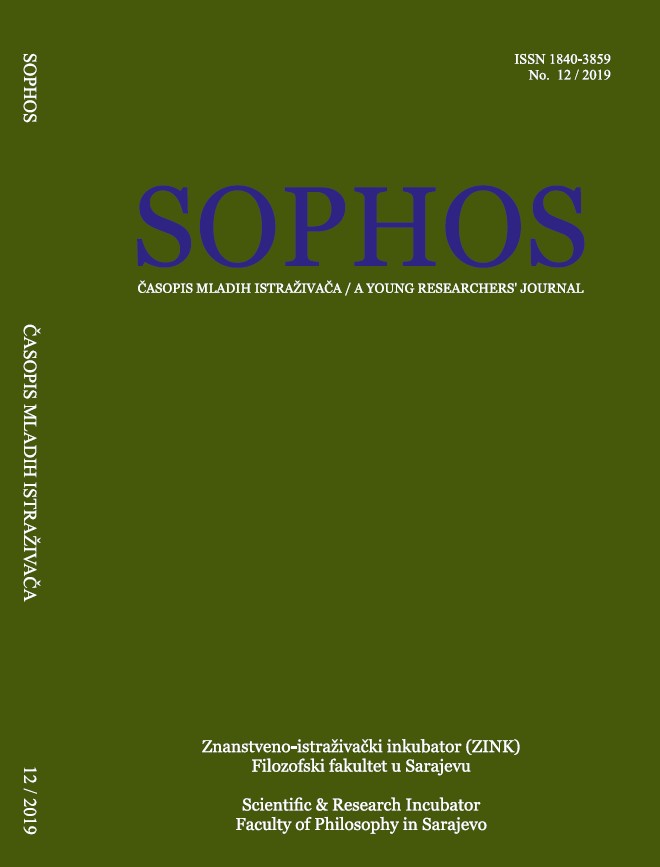
We kindly inform you that, as long as the subject affiliation of our 300.000+ articles is in progress, you might get unsufficient or no results on your third level or second level search. In this case, please broaden your search criteria.


The present study aims to highlight aspects related to the preservation and perpetuation of the musical repertoire of the Lipovan Russians of Sarichioi commune. This ethnic group which constitutes a majority in the above-mentioned geographic area has conducted its existence according to immutable norms capable of ensuring the endurance of its identity in an alien environment. During my field research in Sarichioi commune, I noticed that the collective memory of the community retained a substantial musical repertoire, one that comprises both pieces from the native regions of the Lipovan Russians and pieces from their foster-land. The relatively closed nature of the Lipovan Russian community in Sarichioi commune has protected its musical repertoire from the danger of contamination or exposure to influences specific to the oral cultures of the Dobrogea region. I have, however, noted a disturbance which threatens to push this repertoire into the passive memory of this ethnic group or can bring about the disappearance of certain traditional musical categories in the future. The disturbance I am referring to is the decrease in the number of folklore singers in the community. To prevent such situations, it is our duty to collect the pieces that make up the musical heritage of Lipovan Russians and give them their due scientific attention, thus providing a chance to those interested in the future to discover and appreciate it at its true value.
More...
This issue of International Journal on Rule of Law, Transitional Justice and Human Rights in front of you is already the tenth edition of an annual, peer-reviewed academic journal, copublished by the Association “Pravnik” and the Konrad-Adenauer-Stiftung’s Rule of Law Programme South East Europe. This International Journal is a direct output of the International Summer School Sarajevo (ISSS) which our two organisations co-organise since 2006. Over a period of 13 years, the ISSS has attracted more than three hundred fifty students and young professionals from Europe, Asia and the Americas. After each edition of the International Summer School Sarajevo, our aim was to engage our alumni to contribute to academic discussion with their papers on contemporary topics such as Rule of Law, Transitional Justice or Human Rights. An additional goal is to promote an interdisciplinary approach and build bridges between academia and practitioners in these relevant areas.
More...
There is an urgency, today, to find the proper way to face the rule of law backsliding in the European Union, as some member states are backtracking on the respect for it. The debate today refers to this issue as part of the “Copenhagen dilemma”: eventually outlined in Art.2 TEU, the principle of rule of law started being more carefully assessed and implemented during the 2004 EU enlargement towards Eastern European countries, as it was included in the legal requirements for acceding to the EU (the so called Copenhagen criteria). The dilemma refers to the fact that as of today the EU top-down instruments seem not to be enough in addressing this problem. This Paper aims at reflecting on how a bottomup approach could be introduced in the debate on the protection of the rule of law. Civil society and active citizens, indeed, are playing a key role in becoming protagonists standing for the EU core values: the case of Romania shows how citizens gave a great contribution to the protection of the rule of law. It would be advisable therefore to start developing an institutionalized partnership between public institutions and civil society: the model of participatory democracy could be tabled as a viable proposal for empowering citizens in the protection of the rule of law.
More...
The recent developments of the refugee crisis have shaken Europe but many forgot that it all happened with the Kosovo Albanians leaving their land in the winter of 2015 and heading to EU. They have been the first passengers on the immigration route leading to EU after many others followed them creating a big immigration crisis. The reasons for this crisis are various and we will focus on the case of Kosovo and thus try to help understanding it. Years ago Kosovo citizens started leaving their country legally with Serbian passports and this has created a worrying effect in the EU. As an outcome Serbia was forced to issue a different kind of passport to its citizens in Kosovo. In fact Serbian citizenship belongs to each and every citizen of Kosovo, in fact they are all dual citizens. The problem was that the Serbian government issued passports of a different kind to its Kosovo citizens and that way prevented them from using the visa free travel to EU. This case of discrimination is coming together with the somewhat forceful pushing of the Kosovo citizenship onto the Serbian minority in North Kosovo.
More...
Reconciliation is a process on many levels and for the process to succeed on a broader political level, it is crucial to not overlook or ignore the individual element of reconciliation. The thesis of this article is about the heavy focus on the suffered trauma of victim/survivors in Bosnia and Herzegovina (BiH), disempowering rhetoric and the practised narrative about female victim/survivors by e.g. the International Criminal Tribunal for the former Yugoslavia (ICTY). All of which has contributed to refrain these individuals from reconciling with the past and effectively created an obstacle for the reconciliation process in BiH. This article seeks to illustrate this issue by presenting a theory about the effect of focusing on the trauma-narrative on victim/survivors of conflict-related sexual violence. This is also in conjunction with the rhetoric used about women in general, specifically in the resolutions from the United Nations Security Council as well as the narratives of victim/survivors of conflict-related sexual violence presented by for example the ICTY. Drawing on a new approach to victim/survivors of conflict-related sexual violence in BiH, this article underlines the importance of a change in the narrative and rhetoric, to make progress in the reconciliation process possible.
More...
This abstract analyses the intrinsic character of the legitimate role of revolutionary women in the process of institution building in postrevolutionary France as the pragmatic cornerstone of the institutionnalisation of women rights in the course of the 19th and 20th century. There was a period of gender conflict in the French society. The masculine approach of womanhood was the leading theory in the societal circle of power where the integrity of women as human beings was undermined. Among the many strong prominent leaders there were: Olympe de Gouges, Simone de Beauvoir and Simone Veil that elevated the position of women in the society by denouncing the perennial status quo of male absolutism. The Women’s March for the first time in history forced a king to capitulate. A royal dynasty was destroyed only by the intelligent actions of women activists such Olympe de Gouges, Madame de Steal, Charlotte Corday, Mary Wollstonecraft and most importantly the Women’s March of the members of the Third Estate. This paper will analyse various works of prominent female leaders, but most significantly the core study of the legal foundational scholarship of the articles of the Declaration of the Rights of the Woman and the Female Citizen will be examined, particularly, the scope of emancipation as ‘Citoyenne’ (Female Citizen) and the heroism of Condorcet and Mary Wollstonecraft as pioneers of the established mechanisms for the defence of Women’s human rights.
More...
In the national elections 2018 in Brazil, a right-wing populist and open advocate of the authoritarian military regime that ruled Brazil from 1964 until 1985 Jair Messias Bolsonaro took office. Since the end of the military dictatorship different transitional justice measures were applied in order to compensate past Human Rights violations. However, the perpetrators have never been sentenced and justice has never been restored. In this paper, it is highlighted how the dominant public narrative of the military dictatorship favoured the election of Jair Bolsonaro as reaction to a multiple national crises. The results show that transitional justice efforts in post-dictatorship Brazil have failed on all levels to re-establish truth, justice and the rule of law. The positive narrative of the military law-and-order dictatorship has pushed the Brazilian voters in the direction of a right-wing politician during several tremendous crises. Bolsonaro’s success can therefore be explained by the fertile ground for populist ideas prepared by a fragmented society with roots in the dealings of the past. Further development of the Human Rights and democracy situation in Brazil needs to be observed.
More...
The comfort women, which was a brutal crime in the Second World War, has been a historical dilemma in the international legal practice in the East Asia. It is an impasse made up of gender, decolonisation and nationalism elements. This article tries to propose a possible way to reach a genuine reconciliation on the comfort women issue from a perspective of transitional justice. Firstly, an introduction about the comfort women issue will be introduced, which will establish the whole theoretical analysis framework. The Second Part will try to analyze the obstacles and difficulties to ultimately settle down the comfort women dilemma. In the Third Part, this essay will conduct cases study by retrospecting the currently existing practice that has tried to address the comfort women problem, namely inter-governmental cases and individual-claim cases. The Conclusion will coincide the rationale of the First Part and put forward the possible solution with a threefold structure.
More...
According to the website of the International Center for Transitional Justice, Transitional justice “refers to the ways countries emerging from periods of conflict and repression address large-scale or systematic human rights violations so numerous and so serious that the normal justice system will not be able to provide an adequate response”. How transitional justice did work in France after the Second World War? The country had to deal with the punishment of the responsible, and its reconstruction. This war destroyed the country, socially, economically, and politically, and the needs of reforms was urging. Before all the international conventions, the official recognising of human rights as we know it today and the advent of transitional justice, France and more generally the world had to deal with it and find a balance between justice and rebuilding. The social context was complicated because of the hate and the thirst of revenge of the population and it was another factor for the public authority to deal with.
More...
Recent controversial reforms of the education system in Republika Srpska, one of the two entities of Bosnia and Herzegovina, aiming at introducing the same curricula as in Serbia both in elementary and grammar schools opened the floor to debate on the role of education in the post-conflict settings. This paper’s purpose is to examine different effects that education can have on the post-conflict societies in general and to present measures that shall be implemented in order to pursue the social reconstruction and reconciliation processes. The emphasis will be put on the dangers for education system in societies, which suffered from an ethnic conflict with an in-depth study of education system introduced in Bosnia and Herzegovina after 1995. It will be demonstrated that the reforms implemented in this field in Bosnia and Herzegovina continue hindering the reconciliation process of its society and that this situation is not ready to be changed in the coming years as the division and segregation has been maintained for over twenty years since the end of the civil war. In these circumstances the recent reforms appear only as a continuation of the existing education policies in Bosnia and Herzegovina.
More...
The present article aims to analyze the relationship between the Balkan countries and the European Union between 1995 and 2019. The paper will be structured in two chapters. The first one will take into consideration three phases of the EU relationship with the Balkans, namely the years immediately after the war (1995), the first years of 2000 and, finally, the current times. It will be evident that the trust the former Yugoslavia initially had towards the European Union gradually diminished, leaving an empty space, occupied by others actors. The second chapter will try to find out the reasons why, nowadays, the European Union is seen by the Balkans not as positively as in the past. The analysis of the second section will try to investigate in depth not only the current times, but also the historical roots of Balkan mistrust towards Europe. It will emerge that a variety of historical, cultural, political and economical reasons ground the partial failure in making the Balkans closer to the European Union.
More...
The 21st century has seen a shift away from intra-state conflicts to inter-state conflicts with threats coming from non state armed groups within. This article focuses on the the nexus between conflict politics and organized crime in Kosovo and its effects on ethnic tension. Especially on how an organized crime perpetuated conflict lead to a cycle of violence obstructing transition and the building of Rule of Law. The study is looking on how civic trust and structures affect conflict, politics and in turn, how these reciprocate back on civic trust and structures. Firstly the article outlines the shift in modern warfare from state to non state actors and then continues on to a study of organized crime and parallel structures in Kosovo and what are the root causes of these structures. Lastly recommendations are offered how to deal with the weaknesses found in the previous chapter based on a study on what has been done in the area of Rule of Law.
More...
Recognising the continued importance and relevance of rule of law promotion in transitional justice processes and for sustainable peace and development in countries emerging out of conflict and widespread human rights violations, this paper looks at some of the issues that have been hindering international support to justice sector reform from advancing beyond its so-called ‘orthodoxy’. It examines how conceptual ambiguity has affected the ways in which rule of law programmes are conceived, planned, implemented and evaluated, and thus, how it has contributed to a so-called rule of law impasse. It also looks at some of the programmatic shortcomings as a consequence of this impasse and concludes, by identifying some steps taken in a different direction, that there’s an eagerness to move beyond the orthodox rule of law paradigm.
More...
Transitional justice is the accumulation of the measures implemented in order to address atrocities and return dignity to victims in post-conflict situations. The core objective of this research is to analyze transitional justice, or lack thereof, that is taking place in the Democratic Republic of the Congo (DRC) in regards to psycho-social support for male survivors of sexual based violence during armed conflict. This article will also briefly examine programs that the neighboring country of Uganda is implementing to tackle this issue.
More...
This article examines the policies of both the European Union (EU) towards the Balkans and the Economic Community of Western African States (ECOWAS) towards Liberia with regards to transitional justice. This issue is important as, as regional organizations become more prominent in international relations and post conflict regions it is important to examine their policies as different regional organizations’ policies have had different results, some more desirable then others. This article argues that while both the EU and ECOWAS have policies towards transitional justice, the EU’s policies are more effective as the EU conditions its relations to the pursuit of EU interests which often aligns with policies related to transitional justice, especially with regards to political reform and the rule of law. While the EU can claim success with regards to political reform and rule of law, with regards to reparations the EU has a mixed record and finally when it come to truthseeking initiatives the EU falls short. While the EU can claim success with regards to political reform and mixed successes with regards to the other three components, ECOWAS can only claim one success and that is truth-seeking initiatives. When it comes to rule of law, reparations and political reform, ECOWAS has significant room for improvement.
More...
The purpose of this paper is to analyze lexical errors on the corpus of exams written by third year students of the Italian language and literature at the Faculty of Philosophy of the University of Sarajevo during the History of the Italian Language I course. We will conduct a quantitative and qualitatve analysis of the corpus with the goal of verifying if students are on their way to acquiring the expected B2 level of lexical skills according to the Common European Framework of Reference for Language guidelines. We expect that the research will show a significant influence of the mother tongue and other studied languages as well as that the grammar level will correspond to the B2 level. In the future, we plan to use this research to determine the shortcomings and quality of the History of the Italian Language I course.
More...
1. ʻŠTA je istina?ʼ – reče podrugljivo Pilat i ne htjede da sačeka odgovor. Pilat je bio ispred svog vremena. Jer, sama ʻistinaʼ je apstraktna imenica, deva [kamila], to jest, logička konstrukcija, koja ne može proći pored oka čak i gramatičara. Prilazimo joj sa kapom i kategorijama u ruci: pitamo se da li je Istina neka supstancija (Istina, Tijelo Znanja), ili neki kvalitet (nešto poput crvene boje, što je inherentno istinama), ili neka relacija (ʻkorespondencijaʼ). Ali filozofi trebaju uzeti nešto što je bliže njihovoj vlastitoj veličini čime će se opteretiti. Ono o čemu treba raspravljati je upotreba, ili određene vrste upotrebe riječi ʻistinitoʼ. In vino, vjerovatno, ʻveritasʼ, ali u trijeznom simpoziju ʻverumʼ.
More...
This paper presents the action Pauline legal institution that was born in the Roman period, a legal colossus that will endure until today, of course adapted to the current social, importantă.Vom track with a practical use primarily its inclusion in the legal system referring to the Romanian Romanian legislator inspiration, the grounds of the current regulations, we will also make a comparison between the settlement institution in the civil Code of 1856 and its exposure in light of the New civil Code .In Secondly we develop a study on condţiilor required for admission shares, which are located on two levels, namely, on the first level we will analyze the conditions of admissibility and on the second level acţiunii.De specific terms also will remember succinctly the effects of the action and the end of the work conclusions and suggested we treat ferenda law.
More...
Business management and the warrant is from the perspective of the legal nature of these two distinct and autonomous sources of obligations, but actually behaves numerous affinities. Expression of the principle of equity and solidarity, which imperiously and irrepressible should prevail in the relations established between individuals in society, birth management business finds fundamntul the necessity of defending the values of fides, pietas, Amity and humanitas. This legal mechanism requires a selfless intervention in terms of GESTORE buying a patrimonial benefit, which will have as purpose the avoidance of harm that would be caused if the principal of his inaction. The mandate of representationcontract based on trust relationships between the parties gives the principal in accordance with the demands of contemporary society, the gift of ubiquity by the possibility of legal operations by the Trustee in the name and on his behalf.
More...